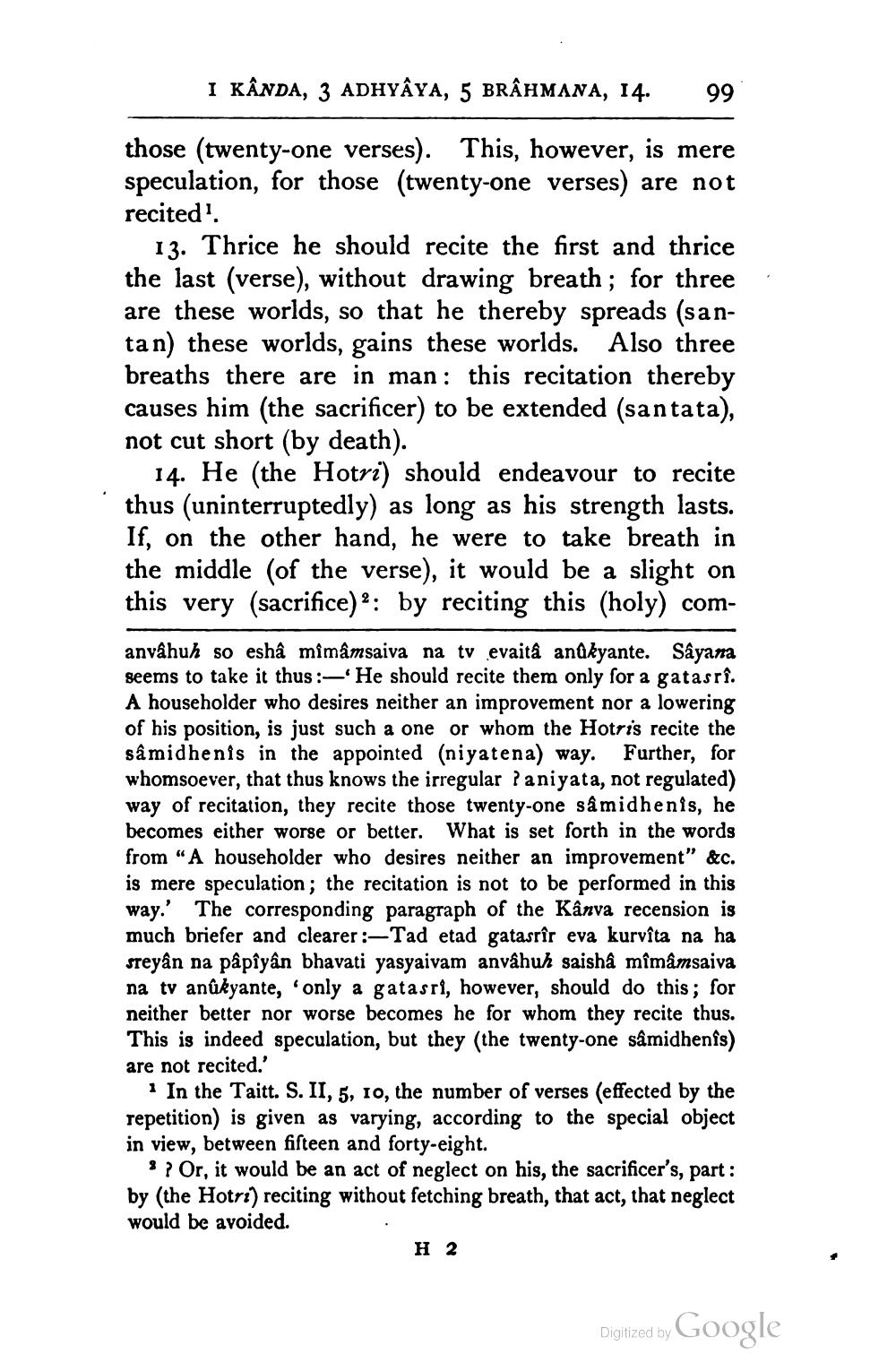________________
I KÂNDA, 3 ADHYÂYA, 5 BRAHMANA, 14.
99
those (twenty-one verses). This, however, is mere speculation, for those (twenty-one verses) are not recited!
13. Thrice he should recite the first and thrice the last (verse), without drawing breath; for three are these worlds, so that he thereby spreads (santan) these worlds, gains these worlds. Also three breaths there are in man: this recitation thereby causes him (the sacrificer) to be extended (santata), not cut short (by death).
14. He (the Hotri) should endeavour to recite thus (uninterruptedly) as long as his strength lasts. If, on the other hand, he were to take breath in the middle (of the verse), it would be a slight on this very (sacrifice)2: by reciting this (holy) com
anvähuh so eshâ mimâmsaiva na tv evaita anūkyante. Sayana seems to take it thus:- He should recite them only for a gatasri. A householder who desires neither an improvement nor a lowering of his position, is just such a one or whom the Hotris recite the sâmidhenis in the appointed (niyatena) way. Further, for whomsoever, that thus knows the irregular ? aniyata, not regulated) way of recitation, they recite those twenty-one sâmidhenis, he becomes either worse or better. What is set forth in the words from "A householder who desires neither an improvement" &c. is mere speculation; the recitation is not to be performed in this way. The corresponding paragraph of the Kanva recension is much briefer and clearer:-Tad etad gatasrîr eva kurvîta na ha sreyân na pâpîyân bhavati yasyaivam anvâhuh saisha mîmâmsaiva na tv anûkyante, 'only a gatasri, however, should do this; for neither better nor worse becomes he for whom they recite thus. This is indeed speculation, but they (the twenty-one sâmidhenis) are not recited.'
1 In the Taitt. S. II, 5, 10, the number of verses (effected by the repetition) is given as varying, according to the special object in view, between fifteen and forty-eight.
8? Or, it would be an act of neglect on his, the sacrificer's, part: by (the Hotri) reciting without fetching breath, that act, that neglect would be avoided.
H 2
Digitized by Google




